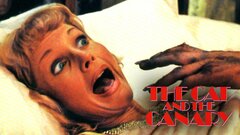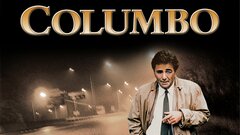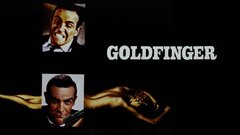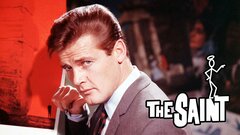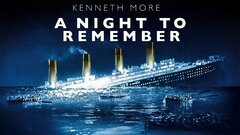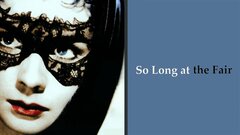Lovely, seductive, and absolutely able to take care of herself in a jam, Honor Blackman helped to establish the tough girl persona that would be adopted and honed in later decades by successors like Milla Jovovich and Kate Beckinsale. The London native moved from stage to screen for roles in features like "Quartet" (1948) and "A Night to Remember" (1958), but would first find genuine fame on television with the droll adventure series "The Avengers" (ITV, 1961-69). As leather-clad tough girl Cathy Gale, Blackman wowed viewers with her femininity and physicality, and that appealing combination led her to be cast in the classic James Bond film "Goldfinger" (1964) as the memorably monikered Pussy Galore.
Although many of the female leads in 007 adventures fell victim to the so-called "Bond Girl Curse," Blackman's career moved along in the wake of "Goldfinger," though the majority of her subsequent films proved to be minor and/or forgettable. She instead found satisfaction working on the stage in productions like "Wait Until Dark" and made periodic appearances on both American and British television. Although Blackman never became a top-tier star, she essayed two iconic characters and proved to be a dependable and desirable performer, expanding her already impressive résumé with assignments right up through her mid-eighties.
Honor Blackman was born on Dec. 12, 1927 in London, England. Blackman's childhood was marred by a difficult relationship with her father, a World War I veteran-turned-civil servant. A strict authoritarian, he was especially hard on both his homemaker wife and daughter, who found him unreasonably demanding. Verbally abusive to Honor, he also occasionally beat her with a belt and rarely offered any sort of praise or affection. On the plus side, however, he did offer to pay for either a bicycle or elocution lessons. Already interested in performing, thanks to her participation in her school's drama class, Blackman chose the latter and shed her Cockney accent in the process. Her father also insisted that she study self-defense and the dexterity Blackman developed from her judo classes proved invaluable in later life.
After her father hit her in the face for wearing lipstick, Blackman moved out at age 18, staying at first with a friend's family and then on her own. Fortunately, Blackman's studies at the Guildhall School of Music and Drama paid off and acting roles soon started to come. During that period, she also married her first husband, businessman Bill Sankey. Blackman made her film debut in the British drama "Fame is the Spur" (1947) and quality work opposite Dirk Bogarde in the acclaimed anthology picture "Quartet" (1948) announced her talents to the motion picture world. She also earned a supporting part in the Robert Taylor and Elizabeth Taylor vehicle "Conspirator" (1949), an MGM production shot in England. Just as her career was gaining momentum, Blackman discovered she was pregnant and opted to have an abortion, an illegal procedure in England at the time.
She went on to appear in such notable movies as "So Long at the Fair" (1950) and "The Rainbow Jacket" (1954), but her marriage to Sankey came to an end in 1954, the result of extensive jealousy on his part and an unhappy reminder of the behavior that had soured Blackman's relationship with her father. The strain contributed to a nervous breakdown and she spent a month in a psychiatric facility. She was soon able to resume her career and landed the female lead in "A Night to Remember" (1958), the Rank Organization's celebrated drama about the sinking of the RMS Titanic. She also gained some small screen experience on programs like "Probation Officer" (ITV, 1959-1962) and "The Four Just Men" (ITV, 1959-1960). In 1961, Blackman wed her second husband, actor Maurice Kaufmann, who had a lengthy career in British films, television and stage productions, and the couple went to adopt two children.
On the heels of that big life event, Blackman was cast as one of her most beloved characters. In 1962, she joined "The Avengers" (ITV, 1961-69) as Cathy Gale, the very able partner of suave John Steed (Patrick MacNee). Looking most fetching in a catsuit and able to best virtually any opponent in a fight, thanks to Gale's mastery of judo, the impressively lithe Blackman was an instant success and soon found herself a popular pin-up girl. During her second season on the show, she and MacNee even recorded a comic single called "Kinky Boots." The Cathy Gale catsuit look later became a standard fashion accessory for successors like Milla Jovovich and Kate Beckinsale in their respective genre film outings. A newly famous Blackman returned to the silver screen as the Goddess Hera in the fantasy adventure "Jason and the Argonauts" (1963), but her career possibilities in that arena would soon accelerate considerably.
At that point, "The Avengers" had yet to play on American television, but James Bond producer Albert "Cubby" Broccoli knew from her charismatic work on the program that Blackman would be a perfect addition to the 007 universe. Thus, she was given the opportunity of being cast in "Goldfinger" (1964), one of the series' finest entries; unfortunately, she was also saddled with the single most - for obvious reasons - infamous "Bond Girl" name in the 007 universe: Pussy Galore. Embarrassing moniker aside, the ever lethal Blackman made for one of the series' most memorable leading ladies and proved to be a novel challenge for Sean Connery's suave agent.
Her brand of femme fatale was still fairly novel at the time, but would eventually become a staple of action movies in the decades to come. While the sexism of "Goldfinger" was very much of its time - including the belief that even the seemingly lesbian Galore was not immune to Bond's seductive powers - Blackman still became a favorite of feminists. Atypically mature at age 37 when was cast, Blackman also proved to be one of the few Bond Girls to benefit from the series' wide exposure. Her career was not without its rough passages, however. Blackman departed from "The Avengers" after two years in favor of more film work, though limp formula fare like "The Secret of My Success" (1965) did little to achieve that goal. She capitalized on her new image with Honor Blackman's Book of Self Defense (1965) and starred in a West End production of "Wait Until Dark," but a second go-around with Connery in the European Western "Shalako" (1968) proved disappointing. Following equally limp efforts like "Lola" (1970) and the horror thriller "Fright" (1971), it seemed like Blackman's motion picture career would not amount to much in the long run.
After finishing her role in the awful Dean Martin western "Something Big" (1971), Blackman stepped away from movies for a few years and concentrated on television, guesting on programs like "Columbo" (NBC, 1971-2003). Her marriage with Kaufmann ended in 1975, but they remained friends. She returned to the film world in "To the Devil a Daughter" (1976), one of Hammer's final horror efforts and a lesser one at that. On the other end of the scale was Radley Metzger's sly and well produced "The Cat and the Canary" (1978), an affectionate homage to more old-fashioned, less explicit scare fare. Globe-hopping television engagements in the miniseries "Lace" (ABC, 1984) and the original run of "Doctor Who" (BBC, 1963-1989) alternated with stage work in productions like "Nunsense." She also re-entered the world of episodic television in the cast of "The Upper Hand" (ITV, 1990-96), a U.K. comedy inspired by the popular Tony Danza sitcom "Who's the Boss?" (ABC, 1984-1992).
By now in her seventies, Blackman's schedule slowed down somewhat, but certainly did not come to a standstill. After a 20-year absence from cinema, Blackman co-starred in the horror thriller "Tale of the Mummy" (1998) and essayed a supporting role in the Renée Zellweger hit "Bridget Jones's Diary" (2001) as Penny Husbands-Bosworth. On the personal front, Blackman expressed her belief that the time for a monarchy in England had passed. When offered the honor of a C.B.E. (Commander of the Most Excellent Order of the British Empire) in 2001, she stuck by her convictions and turned the designation down.
With finances somewhat tight after the collapse of a pension fund that she had invested in heavily, Blackman continued to work, but was usually able to choose projects of some distinction, including a turn on the legendary soap opera "Coronation Street" (ITV, 1960- ). She also entered into what turned out to be a lengthy run as a spokeswoman for the Marks & Spencer department store chain. In 2005, Blackman's still stunning looks were complimented by Good Housekeeping, which named her "the sexiest woman in her 70s." That same year, she also acted in a touring company of "My Fair Lady" and followed up with "Cabaret," her first work in a West End production for two decades. Alternating between homes in England and Spain, Blackman remained active into her mid-eighties, appearing in the thriller "I, Anna" (2012) and the comic horror tale "Cockneys vs. Zombies" (2012).
Her final role came in 2015's "You, Me and Them." Honor Blackman died April 6, 2020 at her home in Lewes, Sussex, England. She was 94.



























